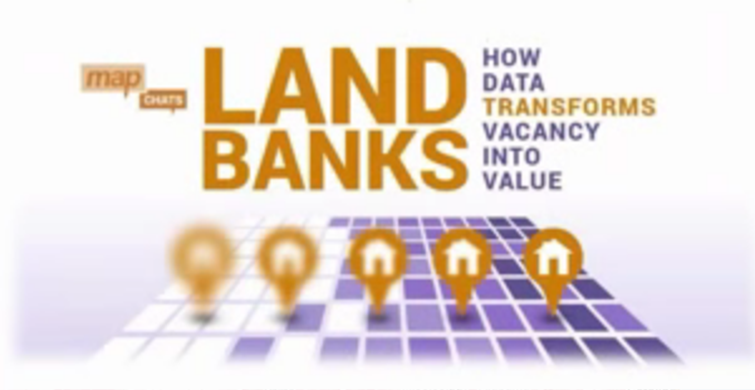Mapchats Webinar: Land Banks: How Data Transforms Vacancy into Value

Missed the Land Banks webinar? Re-watch and learn more about how important they are to revitalizing communities.

Robert Linn is a Senior GIS/Data Manager at Detroit Land Bank Authority. He manages an inventory of 80,000 parcels while overseeing the development of land use policy and the use of data streams to create more granular and proactive responses to the city’s vacant properties.

Michael Schramm is the Director of Information Technology and Research at Cuyahoga County Land Revitalization Corp. He is recognized as a national expert in property data systems. Mr. Schramm developed the land bank property tracking systems called the Property Profile System at the Cuyahoga Lank Bank. This tool helps the corporation use data to make strategic acquisition decisions as well as track property statuses from acquisition to demolition to disposition. The system is now being licensed to other land banks for their property tracking needs.
What can help turn a vacant, abandoned or tax-foreclosed property into an occupied home, a community garden, or other type of community asset? Land banks can. For those of you wondering what a land bank is, it is a government or community-owned entity that acquires, manages, maintains, and repurposes vacant, abandoned, and foreclosed properties. According to one estimate, there are now approximately 120 land banks and land banking programs around the country.
Land banks acquire unused and unsellable properties and help turn them back into productive, valuable assets. They are often granted core powers, such as the ability to hold land tax-free, clear title or extinguish back taxes, or obtain property at low or no cost through the tax foreclosure process, which allows them to acquire and manage problem properties and lots that would otherwise remain as is. Typically, a land bank will acquire a vacant home or empty lot, clean up the property (through demolition, property maintenance, and/or improvements), and sell it to a home-buyer or non-profit entity. In areas where they exist, land banks can be an important tool for reducing the harm of vacant properties and lots.
Despite their potential benefits, the processes of finding the right properties to invest in, tracking property development, and managing an extensive portfolio of properties have been major challenges for land banks. Data has become fundamental to meeting these challenges. PolicyMap has brought in two experts to discuss the use of data to guide land bank efforts in our Mapchats webinar on Thursday, 11/19, from 2pm to 3pm.